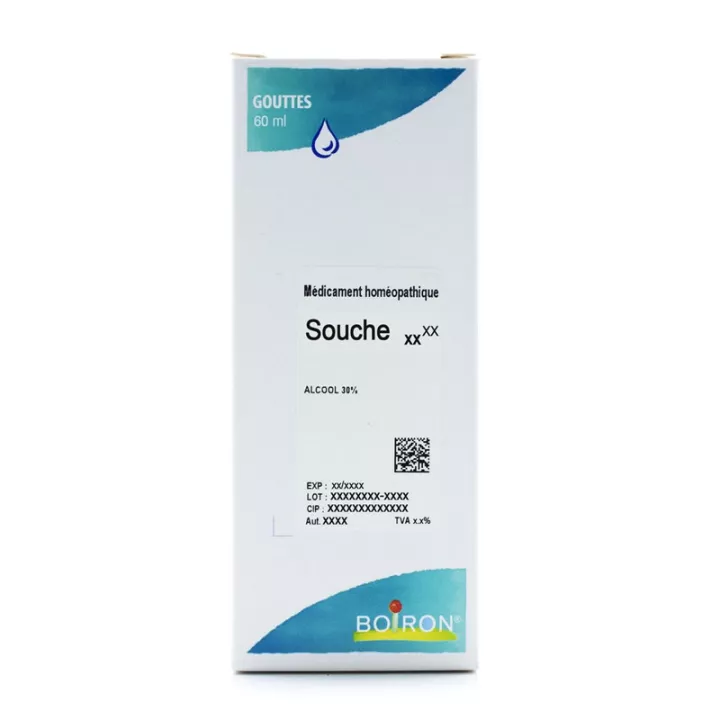Solidago Virga Aurea Homeopathic Granules Boiron
Solidago Virga Aurea offers a natural, flexible therapeutic solution for individuals with urinary and kidney disorders, as well as other conditions requiring diuretic and detoxifying action. Its availability in a variety of formulations and dilutions guarantees a tailor-made approach, illustrating homeopathy's commitment to providing personalized care that respects each patient's unique needs.
Registered medicine: EH00954
Listed in the pharmacopoeia. Origin : Vegetal
Korsakovian dilutions available in 200K, 1,000K, 10,000K, tubes and doses, and marketed as magistral preparations pending evaluation.
Dosage form: Granules, Doses, Drops, Drinkable Ampoules, Triturations, Suppositories
Name: Solidago Virga Aurea
Therapeutic indications: Vesicular pain, Urinary lithiasis
Origin of the homeopathic strain
Solidago Virga Aurea homeopathic strain is extracted from goldenrod, a plant of the Asteraceae family characterized by its yellow flowers and reddish stem. This plant is mainly found in woods and clearings. The mother tincture is prepared from the plant's flowers.
Solidago Virga Aurea indications and dosage
Homeopathic medicines can be used for a variety of symptoms. The homeopathic physician selects the dilution and dosage appropriate to the patient's state of health and characteristic symptoms.
Solidago Virga Aurea, commonly known as Goldenrod Solidago, is a homeopathic strain of plant origin. This plant is traditionally used for its diuretic and anti-inflammatory properties.
Solidago Virga Aurea is frequently used to treat the following pathologies:
- Urinary and kidney disorders, such as urinary tract infections, kidney inflammation and kidney stones, by helping to increase urine production and promote the elimination of toxins.
- Edema and water retention, where its natural diuretic properties can help reduce excess fluid in the body.
- Joint pain and rheumatism, where it can help eliminate metabolic waste and reduce inflammation.
For bladder pain, it is advisable to combine Solidago virga aurea with other homeopathic remedies such as Carduus marianus and Chelidonium majus for a synergistic hepatic action. In cases of urinary lithiasis, the combination with Berberis vulgaris is recommended for optimal efficacy.
Therapeutic indications:
- Solidago Virga Aurea is traditionally used in homeopathy for its beneficial effects on the liver and kidneys, acting as a drainer.
- It is also recommended for its anti-inflammatory action.
- Can be used in cases of excess uric acid.
Solidago Virga Aurea Boiron: A Homeopathic Remedy for the Urinary and Digestive Systems
Solidago Virga Aurea, offered by Boiron in a wide range of dilutions, from 3CH to 30CH, as well as 4DH, 6DH, 200K and 1000K in the form of granules, doses or drinkable solution, is ahomeopathic medicine frequently recommended for its effectiveness in urology and gastroenterology. It is specifically used to treat benign renal insufficiency accompanied by oliguria, and benign hepato-biliary insufficiency.
Use in Urology
Improving renal function: Solidago Virga Aurea plays a crucial role in the management of benign renal insufficiency, helping to improve urinary output and support renal function. This remedy thus offers invaluable support for those suffering from oliguria, promoting better elimination and urinary well-being.
Application in Gastroenterology
Hepato-biliary support: In gastroenterology, Solidago Virga Aurea helps treat benign hepato-biliary insufficiencies, contributing to improved liver and gall bladder function. This homeopathic treatment aids digestion and general digestive comfort.
A Gentle Method for Urinary and Digestive Well-being
Towards Better Urinary and Digestive Health: Using Solidago Virga Aurea in homeopathy represents a gentle, natural method of treating mild ailments of the urinary and digestive systems, without the side effects often associated with conventional drug treatments. This homeopathic remedy is a valuable therapeutic option for those seeking natural solutions for their urinary and digestive health.
How to use Solidago Virga Aurea
Remove tab, invert tube of Solidago Virga Aurea 3CH, 4CH, 5CH, 7CH, 9CH, 1DH, 3DH, 6DH and pull cap slightly.
Turn the tube to drop the desired number of granules into the cap, then place the granules under the tongue.
Do not touch the homeopathic granules with your fingers.
If no dose is available, take 10 granules of the same dilution.
Dilution (Solidago Virga Aurea 4DH, 6DH drops)
60 ml bottle (1,200 drops)
Usual dosage
Adults: 10 to 15 drops per dose
Children under 12: 1 drop per year of age, not to exceed 10 drops per dose.
Do not administer without medical advice.
2 to 3 times a day.
Oral use
Dilute in a little water. Hold for a few moments in the mouth before swallowing.
In children, take at least 4 hours apart.
Use a mint-free toothpaste (such as Homéodent Boiron, which is compatible with homeopathic granules).
How to use Solidago Virga Aurea Boiron?
It is important to follow the dosage recommendations provided by a healthcare professional to ensure optimal use of Solidago Virga Aurea in your treatment protocol.
Is Solidago Virga Aurea suitable for everyone?
Solidago Virga Aurea may be indicated for individuals facing the urinary and digestive conditions mentioned, but a medical consultation is recommended for a personalized assessment and prescription.
When can an improvement be observed?
Results may vary according to the individual and the severity of symptoms. Improvement may be noted after several days or weeks of regular use. Regular follow-up with a healthcare professional is recommended to assess treatment efficacy.
Key clinical applications
Vesicular pain
This homeopathic remedy is indicated for the relief of vesicular pain. It is often combined with other homeopathic remedies such as Carduus marianus and Chelidonium majus, which have a hepatic action, and Taraxacum dens leonis.
Urinary lithiasis
It is also effective in the treatment of urinary lithiasis, often in association with Berberis vulgaris, whoseaction is mainly renal.
Dosage protocols
For the indications mentioned, the recommended dilution is Solidago Virga Aurea 6 DH. The protocol consists of 20 drops to be diluted with water and taken before lunch and dinner. Treatment lasts between 1 and 3 months.
Packaging and contents
Tube of Solidago Virga Aurea 3CH, 4CH, 5CH, 7CH, 9CH, 1DH, 3DH, 6DH translucent granules (to show remaining granules). Weight 4g. Approx. 80 granules.
This homeopathic medicine is prepared from Solidago Virga Aurea extract, diluted and dynamized according to homeopathic principles.
For more information on this medicine, or to obtain personalized advice, we suggest you consult a health care professional or a pharmacist trained in homeopathy.
Solidago Virga Aurea, also known as goldenrod, is a plant known for its diuretic and detoxifying properties. Registered under number EH00954 and listed in the French and European Pharmacopoeia, this homeopathic strain is available in doses, drops (alcohol), tubes and magistral preparations, offering a range of dilutions adapted to various therapeutic needs. This article explores the characteristics and applications of Solidago Virga Aurea in homeopathic medicine.
Origin and properties
Solidago Virga Aurea is a medicinal plant traditionally used for its beneficial properties on the urinary system. In homeopathy, it is prepared from the whole plant, exploiting its natural diuretic effects to treat various kidney and urinary disorders.
Available formulations
Doses and Tubes: Solidago Virga Aurea is available in several potencies, ranging from 3 CH to 30 CH in tubes and from 4 CH to 15 CH in doses, enabling treatment to be tailored to the patient's symptoms and sensitivity.
Drops (Alcohol): Also available in alcoholic drops at 4 DH and 6 DH, this formulation facilitates easy administration and effective absorption.
- Solidago Virga Aurea 4DH Drops: Available in 125 ml bottles, this homeopathic medicine is prepared in 4DH dilution.
- Solidago Virga Aurea 6DH Drops: Available in 60 ml bottles, it is prepared in 6DH dilution.
Magistral preparations: For a more specific adaptation, Solidago Virga Aurea can be prepared in Hahnemannian dilutions from 2 CH and in Korsakovian dilutions (200K, 1,000K, 10,000K), reinforcing the individualized approach of homeopathy.
Therapeutic applications
Solidago Virga Aurea is frequently used to treat the following conditions:
- Urinary and kidney disorders, such as urinary tract infections, kidney inflammation, and kidney stones, by helping to increase urine production and promote the elimination of toxins.
- Edema and water retention, where its natural diuretic properties can help reduce excess fluid in the body.
- Joint pain and rheumatism, where it can help eliminate metabolic waste and reduce inflammation.
Caution for use
Warning
Contains sucrose. Store homeopathic medicines away from light, heat and moisture.
Giving Solidago Virga Aurea homeopathic granules to babies and children
Homeopathic granules should be dissolved in 100ml of water. As the granules take a very long time to dissolve, you'll need to prepare your mixture in advance.
Homeopathy and pregnancy
Solidago Virga Aurea 3CH, 4CH, 5CH, 7CH, 9CH, 1DH, 3DH, 6DH homeopathic medicines have no chemical toxicity, no contraindications, no interaction with other medicines, and no adverse effects linked to the quantity of product ingested. Pregnant women can take the product without any known risk to themselves or their unborn child, but it is advisable to seek advice.
Frequency of homeopathic use
For acute conditions, homeopathic remedies should be taken every hour until symptoms improve. From then on, they should be taken 3 or 4 times a day, spaced out, and then gradually stopped.
For chronic conditions, low-dilution remedies (> 9CH) should be taken 1 or 2 times a day, while basic remedies should be taken once a week, or even once a month. This decision is left to the homeopath.
What to do if there is no improvement within 24 hours
Certain pathologies cannot be treated with homeopathy simply by self-medication. Your doctor will decide whether your condition can be treated with homeopathy alone, or whether your treatment needs to be supplemented with allopathic medicines.

























